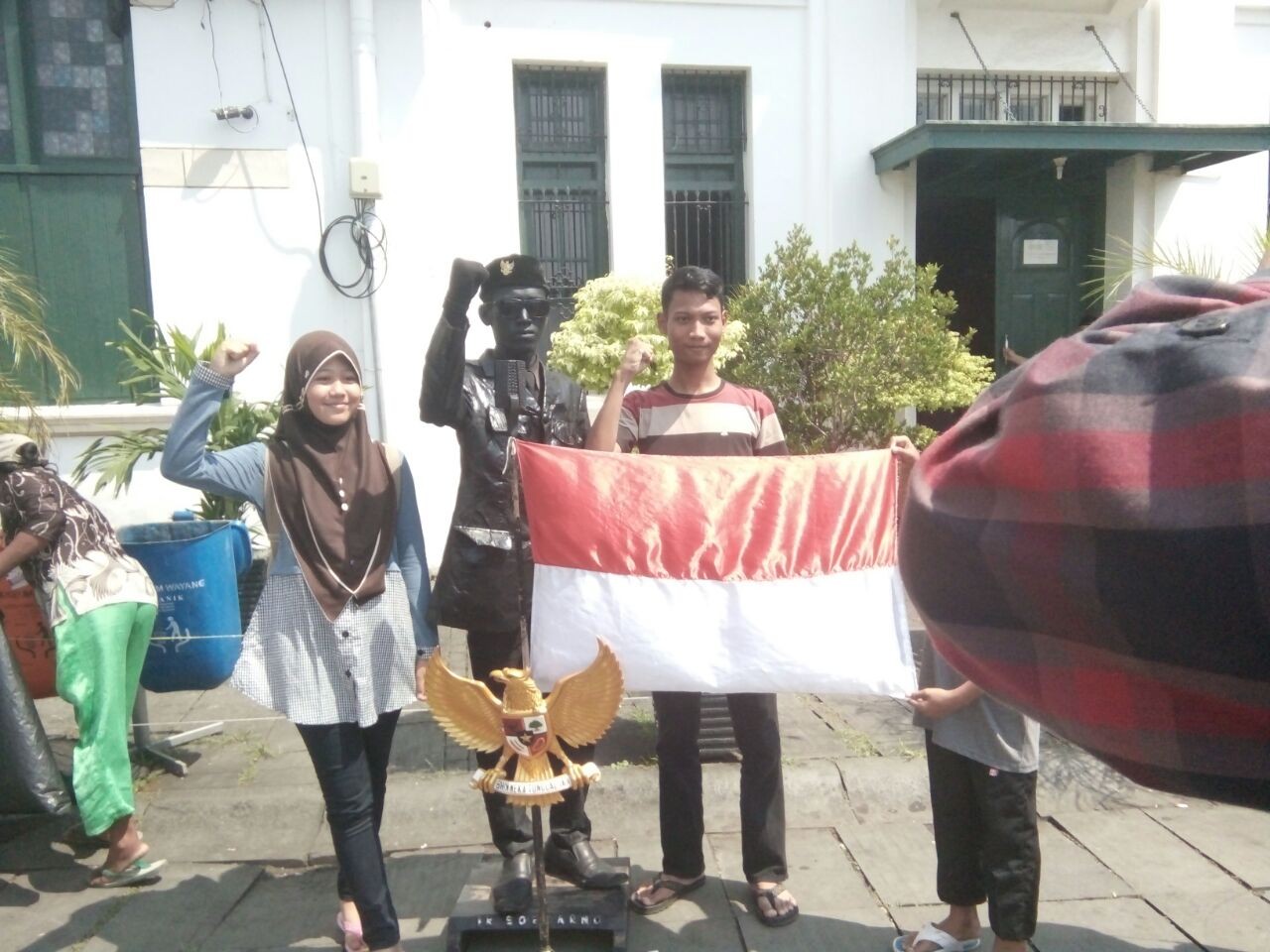Popular Reads
Top Results
Can't find what you're looking for?
View all search resultsPopular Reads
Top Results
Can't find what you're looking for?
View all search resultsIdul Fitri greeting: Indonesian or Arabic way?
Change text size
Gift Premium Articles
to Anyone
In most parts of the Muslim world, Eid mubarak is the most popular Idul Fitri greeting. But Indonesian Muslims hardly use it.
One of the unique traditions in Indonesian Islam is to say minal aidzin walfaizin, mohon maaf lahir dan batin as an Idul Fitri greeting. The first sentence is in Arabic and means, “May you be among those who return [to purity] and among those granted victory.” The second sentence is Indonesian for “I ask for your forgiveness physically and emotionally.”
For many Indonesians, even the older generation, the greeting seems to be as old as the religion itself, though it actually comes from a song written by legendary composer Ismail Marzuki in the 1950s.
The phrase derives from the song’s chorus: Minal aidhin walfaizin/maafkan lahir dan batin/Selamat para pemimpin/Rakyatmu makmur terjamin. The song is also popular in Singapore and Malaysia, especially after legendary Malaysian singer and actor P. Ramlee covered the song in the mid-1970s.
According to Ahmad Shahidah, a lecturer at Utara Malaysia University, P. Ramlee's cover of Marzuki's song made the Indonesian word Lebaran popular in Malaysia and Singapore, where the phrase “Aidil Fitri” is more widely used.
It is not clear where Marzuki got the phrase minal aidhin walfaizin. Some say it was originally used in a poem by Andalusian poet Shafiyuddin al-Huli. Even though it is in Arabic, those who speak the language are not familiar with the phrase.
This unique greeting, however, appears to be becoming less common
In recent years, some Indonesian Muslims, once seen as taking a more inclusive approach to local traditions, have challenged the use of the greeting, in what could be seen as a sign of growing religious puritanism in the country.
The anti-minal aidhin proponents argue that the phrase has no scriptural basis and belittles the meaning of Idul Fitri as merely about asking forgiveness.
A broadcast message circulated on Indonesian social media in recent days claims that it is wrong to use minal aidhin as an Idul Fitri greeting. The message, purportedly written by Syafiq Riza Basalamah, says: “It is wrong [to say it]. Idul Fitri is not a day to ask for forgiveness.”
It is not clear if Syafiq actually wrote the message, which has stirred controversy among Indonesian Muslims.
The message suggested that Indonesians use the “right” greeting, which is taqoballahu minna wa minkum (may God accept my good deeds and yours). This greeting has been used by mainstream Indonesian Muslims for decades, but there have never been calls for Muslims to stop using the minal aidhin greeting.
Nadirsyah Hosen, a Nahdlatul Ulama (NU) member in Australia who is also a lecturer at Monash Law School, wrote on his Facebook page that the call for banning the minal aidhin greeting was misguided. According to Hosen, even the top Wahabbi cleric in Saudi Arabia, who advocates Islamic puritanism, does not say that using greetings other than taqoballahu minna wa minkum is forbidden.
The problem with Wahabbis is that they do not differentiate between “religious affairs and local wisdom, between theological and social issues”, Hosen said. (ary/dmr)










